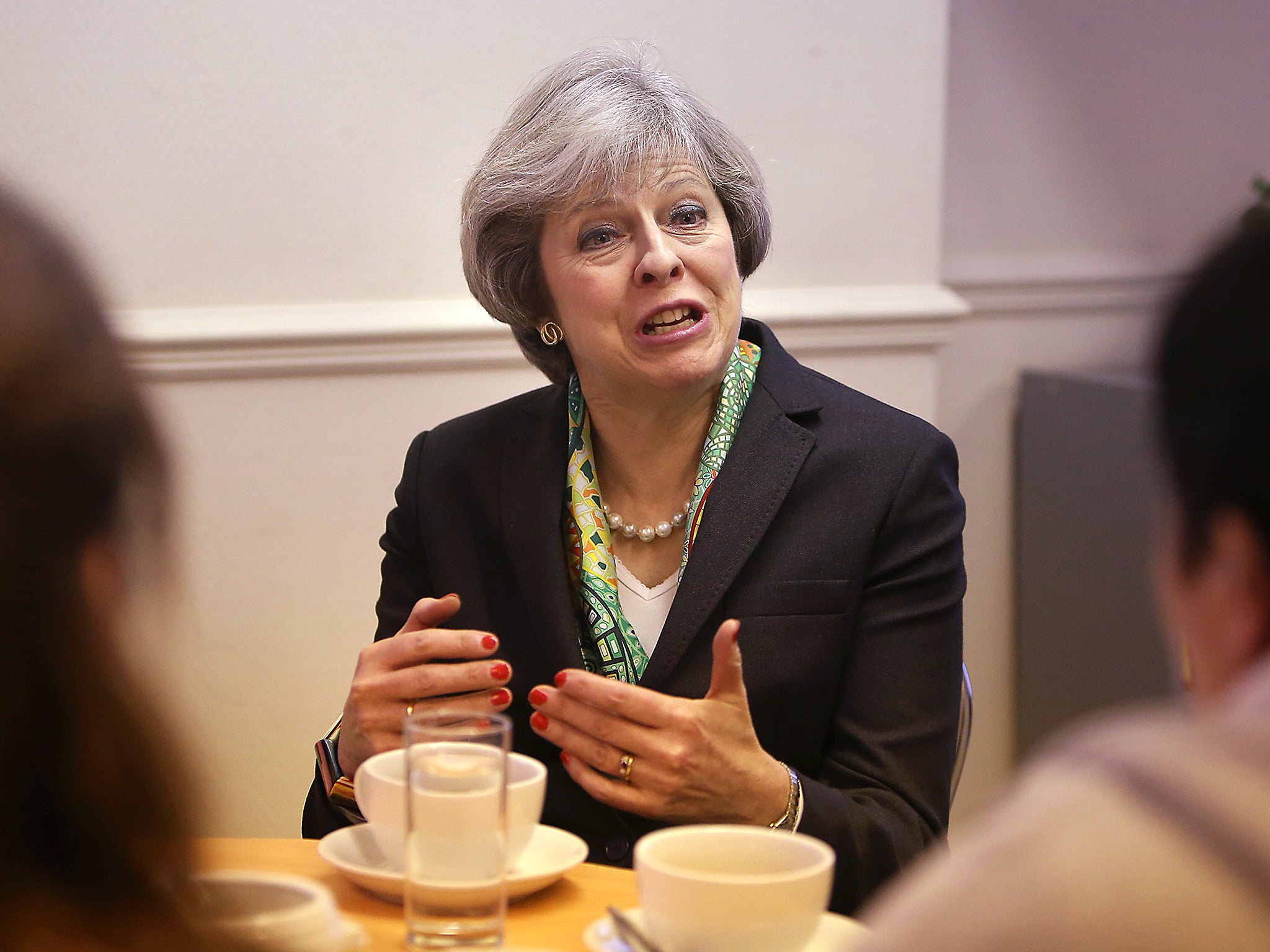Brexit: Theresa May urged to clarify her position on single market by senior Tory
'A document is needed that enables a full and considered consultation with Parliament and the public,' said Andrew Tyrie

Your support helps us to tell the story
From reproductive rights to climate change to Big Tech, The Independent is on the ground when the story is developing. Whether it's investigating the financials of Elon Musk's pro-Trump PAC or producing our latest documentary, 'The A Word', which shines a light on the American women fighting for reproductive rights, we know how important it is to parse out the facts from the messaging.
At such a critical moment in US history, we need reporters on the ground. Your donation allows us to keep sending journalists to speak to both sides of the story.
The Independent is trusted by Americans across the entire political spectrum. And unlike many other quality news outlets, we choose not to lock Americans out of our reporting and analysis with paywalls. We believe quality journalism should be available to everyone, paid for by those who can afford it.
Your support makes all the difference.Theresa May has been urged by a senior Conservative to clarify if Britain will attempt to remain a member of the tariff-free single market after Brexit.
At a speech in London, Andrew Tyrie, who is also chairman of the influential Treasury Select Committee in Westminster, said the Prime Minister’s plan to set out broad objectives in the coming weeks was welcome, “if not overdue”.
It comes after Ms May said at the weekend that Britain cannot expect to hold on to “bits” of its membership with the EU after Brexit and insisted she intended to deliver a “really good, ambitious trade deal”.
“A document is needed that enables a full and considered consultation with Parliament and the public,” Mr Tyrie added at the DLA Piper Future of the City dinner. He also called for Ms May to set out whether the Government will seek a transitional deal as it negotiates Britain's exit from the EU.
Mr Tyrie continued: “First, there is the question of whether the UK will seek to remain a member of the single market, or if not, seek at least to obtain equivalent access for trade in goods and services.
“Clarity on this point would enable Britain to start making a crucial point to our counterparties: the four freedoms of the single market are neither immutable nor irretrievably interdependent. In any case, the EU will have to address the consequences of flows of people within its borders on a scale not envisaged when the Treaty of Rome was signed in 1957.
“Second, the UK needs to decide whether to participate in a customs union with the EU. If not binary, most of the options are relatively clear cut," he added. "From inside a customs union, the UK would continue to share the EU's common external tariff, leaving little scope for global leadership in free trade. From outside, the UK would have the freedom to pursue an independent trade policy, albeit at the cost of new administrative impediments to UK-EU trade.
“Third, and perhaps most important of all, the Government should take the opportunity to clarify whether the UK will seek transitional arrangements under Article 50. This provides that the EU Treaties may continue to apply to the UK, for an agreed period, after the withdrawal negotiations have been completed. This is a very important but apparently misunderstood provision.”
Mr Tyrie, who had previously called for an “early, full and detailed explanation” of the government’s negotiating position in September last year, said, however, that the Prime Minister’s New Year message “rightly talked about securing a deal with the EU that commanded the support of both Leave and Remain voters”.
“That matters a lot,” he said. “There is almost certainly a majority in the country – and a cross-party majority in Parliament – for a continued close economic and political relationship with the EU from outside. Safeguarding the economic well being of the country probably requires a relationship that is considerably deeper than that provided for under WTO rules.
“Given the need to build a broad-based support for its position, at home and abroad, the sooner the Government can provide clarity, the better.”
Join our commenting forum
Join thought-provoking conversations, follow other Independent readers and see their replies
Comments